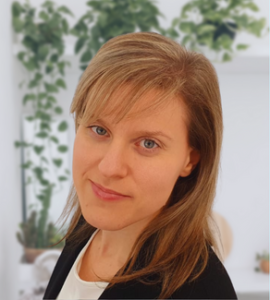What is Anxiety and what can we do about it?
Stress and anxiety are unavoidable parts of our human experience. In fact, it is normal to feel stressed or worried when life throws challenging experiences at us. In this Post-Millennial society where difficult dialogues about mental health have come to the fore, anxiety has become a common topic of conversation. And rightly so, 3 million people struggle with anxiety in Australia alone (Beyond Blue).
The good news is, it is treatable. But how? – is the million dollar question. In this article, we will explore some tips to manage anxiety. But before we do that, first, let’s define what anxiety is. In a clinical sense anxiety is more than feeling stressed or worried. It is persistent, may not have a clear cause and makes dealing with daily life very difficult to manage.
In the Diagnostic and Statistical Manual of Mental Disorders (DSM-5-TR) there are many forms of anxiety with their own set of clinical criteria. These include generalized anxiety, substance-induced anxiety, social anxiety, selective mutism and specific phobia. For the purpose of this article, we will focus on Generalized Anxiety Disorder (GAD).
According to the Diagnostic and Statistical Manual of Mental Disorders GAD is
- Excessive anxiety and worry most of the time
- Difficulty controlling the worry
- Experiencing some of the following symptoms:
– Restlessness
– Tire easily
– Difficulty concentrating or mind going blank
– Irritability
– Muscle tension
– Sleep disturbances
The above symptoms cause difficulty to participate or carry out day to day activities.
What to do if you or someone you know has anxiety?
- Speak to your doctor and have a general physical check-up to rule out any underlying illnesses or vitamin deficiencies
- Find a therapist who can provide professional help to support you on your journey of recovery. Therapists can introduce you to helpful skills and resources, and help you find the root cause of your anxiety. Be prepared that you may have to try a few different therapists to find the right one for you
- Learn more about anxiety. Understanding the different biological processes going through your body can empower you to understand what you are dealing with, and how your body works
- Approach this journey of recovery with determination and willingness
- Eliminate caffeine intake as much as possible
- Introduce daily exercise into your routine, i.e. walking, Pilates, swimming etc. Choose something that you enjoy
- Ensure you get adequate amount of sleep. Follow a good sleep hygiene routine
- Be aware of your stressors. Understanding what is contributing to your anxiety can help you make changes and thus help you reduce your anxiety. It is possible you have simply over-committed yourself and need to make adjustments in your schedules, commitments and daily routines
- Try mindfulness and grounding
- Reach out to someone who you know also struggles with anxiety. When we encourage someone else not only they are being helped, but in the process we also feel better
Some of the above steps may be more challenging for you to carry out than other ones. Do not expect yourself to do it all at once. Recovery is a journey, and it is not a sprint, but a marathon. Take your time, one step, and one little change at a time. Expect that there will be some good days and bad days, there may be some setbacks, but do not get discouraged, it is part of the process.
If you would like some support with your anxiety, reach out for help, make a booking and begin your journey of recovery with us.
Author: Katalin Mezei, BA (Hons) Psych & Crim, G. Dip Psych, MSc Health Psych
 Katalin Mezei is a Provisional Psychologist now based in Brisbane, having completed my undergraduate and Master’s training in the United Kingdom. My aim is to help people identify my clients’ core values and help them live according to them.
Katalin Mezei is a Provisional Psychologist now based in Brisbane, having completed my undergraduate and Master’s training in the United Kingdom. My aim is to help people identify my clients’ core values and help them live according to them.
To make an appointment with Katalin please call M1 Psychology Loganholme on (07) 3067 9129 or Vision Psychology Wishart on (07) 3088 5422.